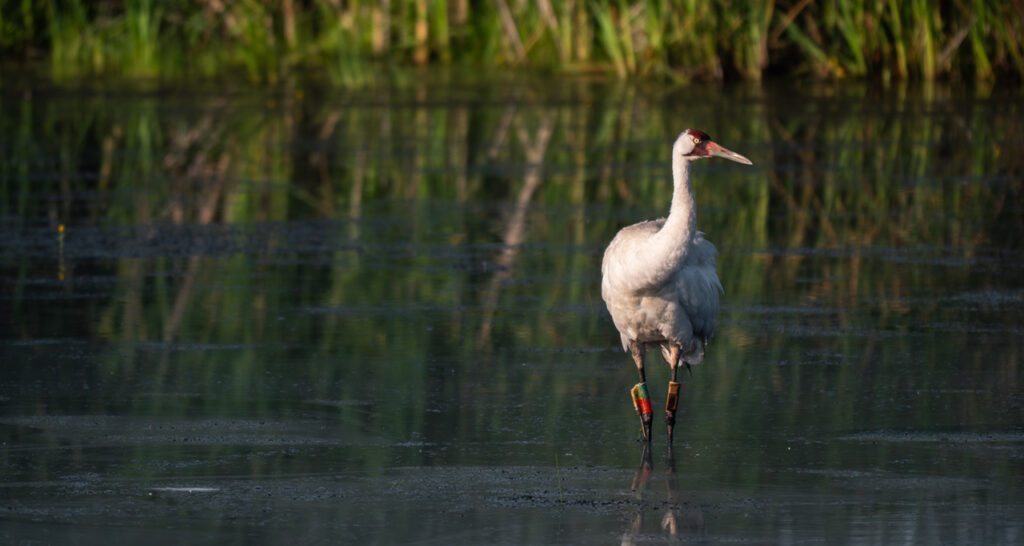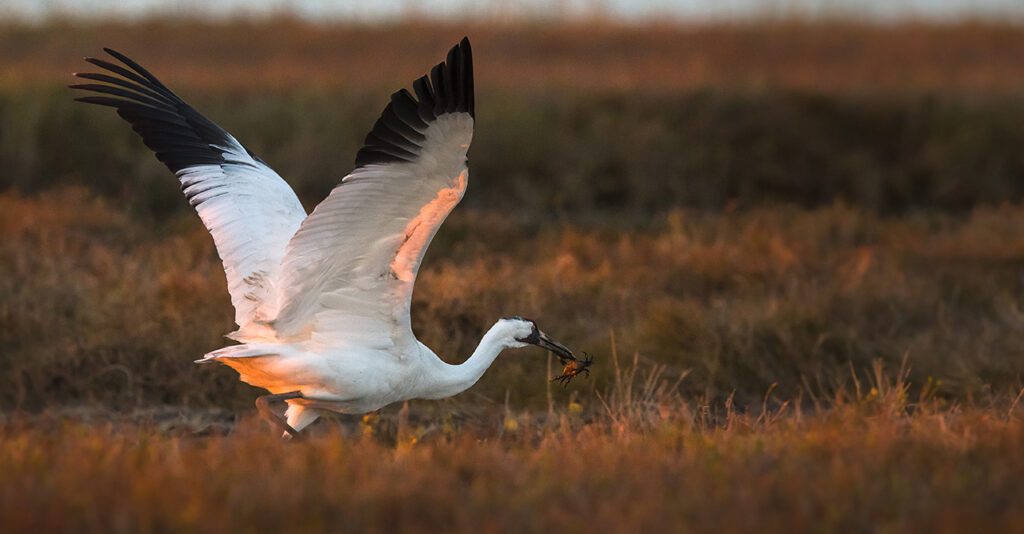Loss of Whooping Crane Chick at Horicon National Wildlife Refuge
Update: We have received W2-23’s necropsy results from the National Wildlife Health Center in Madison, Wisconsin. The analysis showed that the young crane was compromised from a systemic parasite disease common in birds. Unfortunately, a final trauma to its left foot was more than the young crane could survive. Photos by Doug Pellerin
CONTACT: Jodi Legge, Director of External Affairs, 608-356-9462, ext. 120
July 11, 2023 – The International Crane Foundation (ICF) is sad to share the loss of a Whooping Crane chick at Horicon National Wildlife Refuge. The female chick hatched in the wild on May 7th. The specific cause of death is still pending.
ICF has been monitoring the chick and her parents as part of its crane conservation program at Horicon Marsh. Hillary Thompson, ICF’s North America Program Crane Analyst, recovered the young crane’s body on Friday morning, July 7th, and transferred it to the National Wildlife Health Center in Madison for a necropsy.
“This crane family was often visible at Horicon and was a favorite for visitors to the refuge,” said Thompson. “Our online audiences also followed the family’s progress through our social media posts and updates. While there are still four remaining Whooping Crane chicks in Wisconsin, each one is precious and every loss reminds us of the fragility of the species.”
The chick’s parents came from ICF headquarters as part of the Whooping Crane Reintroduction Program – one was costume-reared and released in 2015 and the second was parent-reared and released in 2017. The pair naturally hatched and raised the chick this year.
Thompson noted in the Eastern Migratory Population, only 18% of all wild hatching Whooping Cranes survive to fledging – fledging is defined as when a crane can first fly, which happens around 80 days after hatching. “Unfortunately, mortality at this young age is quite common as these young birds need to navigate a new and difficult environment. Threats to the chicks include predation, impact trauma, disease and exposure.”
For 50 years, ICF has been working to save this endangered species and currently, there are only 836 Whooping Cranes in North America. ICF currently has 44 Whooping Cranes at the headquarters in Baraboo and produces chicks each year for reintroduction into the wild and for genetic management of the species. Learn more about Whooping Cranes and ICF’s programs to save them at: www.savingranes.org.

